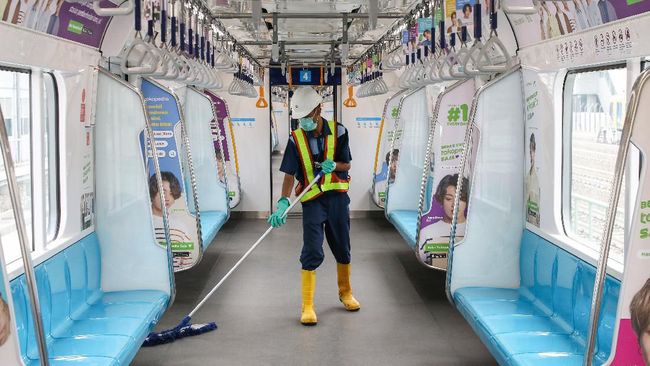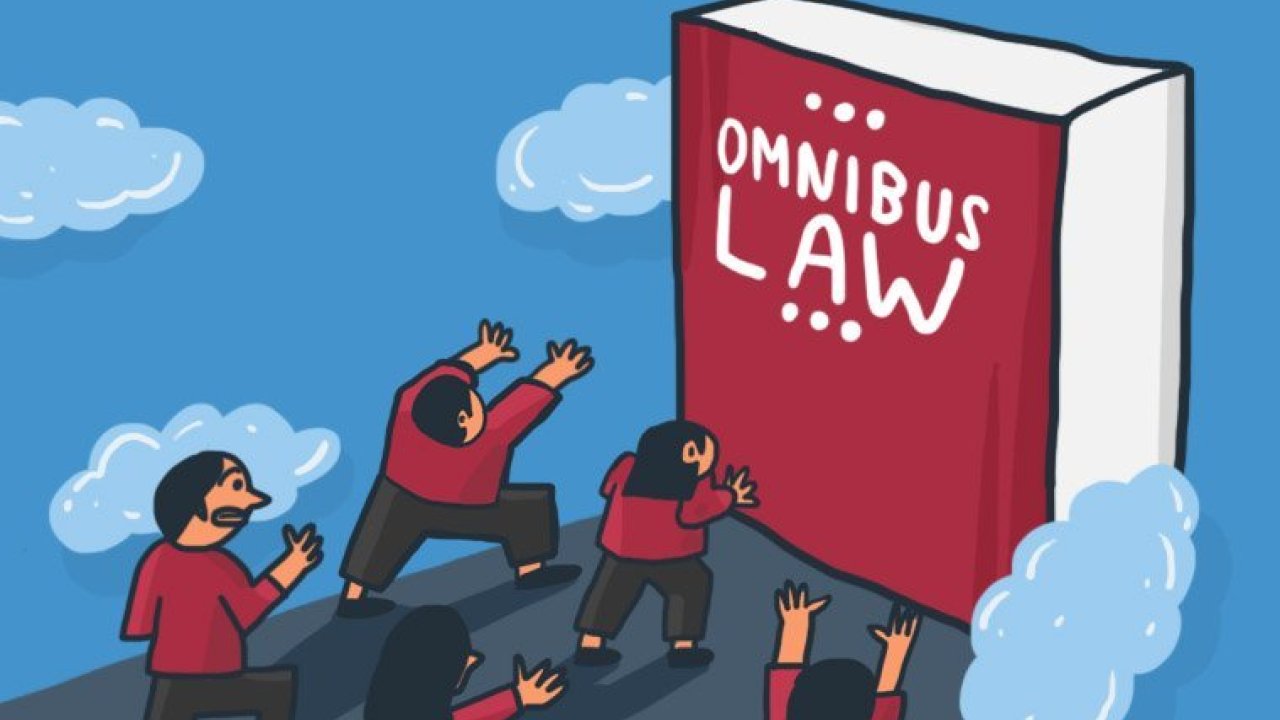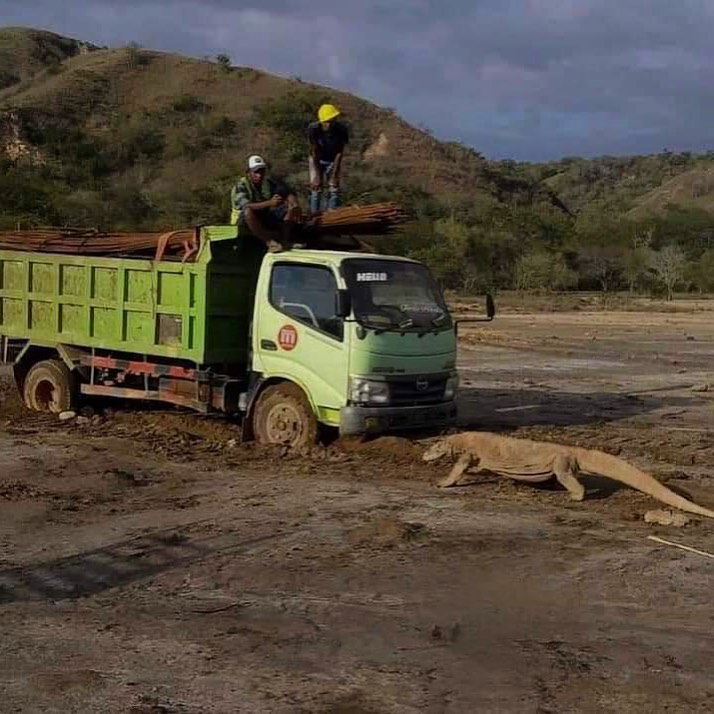Kenneth Yeung looks back at a year of bad news.
January 1 – Floods and landslides kill at least 66 people in Greater Jakarta.
January 10 – The Forestry and Environment Ministry terminates a forest conservation partnership with the Worldwide Fund for Nature (WWF), accusing WWF of allowing the burning of a forest.
January 27 – Amid fears that COVID-19 has reached Indonesia, Health Minister Terawan Agus Putranto tells people to eat breakfast, exercise and pray.
January 31 – American journalist Phil Jacobson of environmental news website Mongabay is expelled from Indonesia after spending four days in jail in Central Kalimantan for not having a journalist’s visa.
February 2 – In response to COVID-19, Indonesia halts flights to and from China, after 238 Indonesians are evacuated from Wuhan city to Indonesia’s remote Natuna Island.
February 5 – The first Indonesian confirmed to have COVID-19 is a maid in Singapore.
February 11 – Indonesia refuses to repatriate 689 of its citizens who joined the Islamic State terrorist army in Syria.
February 15 – Health Minister Terawan Agus Putranto says prayer makes Indonesia immune to COVID-19.
February 27 – Vice President Ma’ruf Amin says Indonesia has no known COVID-19 cases, so it deserves an exemption from Saudi Arabia’s temporary ban on foreign hajj pilgrims. The exemption is not granted.
March 1 – The government announces discounted domestic flights to encourage tourism amid the pandemic. The president insists cheap flights will not spread the virus.
March 2 – Indonesia announces its first two COVID-19 cases, saying they contracted the virus from a Japanese person.
March 11 – Officials declare a British woman in Bali is the first person to die from COVID-19 in Indonesia.
March 14 – Indonesia starts taking COVID-19 more seriously, declaring a national disaster after the transport minister tests positive. Many schools, workplaces and public spaces are closed.
March 31 – Bob Hasan, who ran a plywood monopoly under former president Suharto and was later jailed for corruption, dies from lung cancer aged 89.
April 1 – Reports emerge that numerous villages are refusing to bury COVID-19 victims.
April 2 – Indonesia closes its borders for non-essential travel. Foreign tourists are indefinitely banned from entering.

The government says 30,000 prisoners will be released to prevent COVID-19 outbreaks in overcrowded jails.
April 5 – Wearing face masks in public is made mandatory.
April 8 – Singer Glenn Fredly, who campaigned for forest conservation and peace in Papua, dies at age 44 from meningitis.
April 9 – Australia withdraws its ambassador to Indonesia because of COVID-19 concerns, while numerous countries continue to urge their citizens to leave Indonesia.
Also Read Expats in Indonesia, Have You Hit the COVID-19 Panic Button Yet?
April 21 – President Joko Widodo announces that mudik (the post-Ramadan practice of traveling from cities to hometowns) will be banned from 24 April, causing a rush to travel before the deadline.
April 22 – Government critic Ravio Patra is arrested after hackers use his phone number to send a message calling for anarchy. He is released two days later, amid protests he was set up by the authorities.
May 29 – Indonesia announces its “New Normal” concept, allowing the re-opening of schools, malls and tourist destinations. The nation’s COVID-19 cases pass 25,000, while its testing rate remains among the lowest in Asia.
17 June – Amid the global Black Lives Matter protest movement, seven Papuans are sentenced to between 10 and 11 months in prison for treason. Prosecutors had sought 17-year sentences.
June 25 – Fishermen in Aceh province rescue nearly 100 Rohingya refugees from Myanmar, despite resistance from officials. Another 297 Rohingya boatpeople would be rescued in September.
July 1 – The World Bank for the first time classifies Indonesia as an Upper Middle-Income Country.
Jakarta bans single-use plastic bags.
Former Supreme Court secretary Nurhadi Abdurrahman and his son-in-law Rezky Herbiyono are arrested for allegedly accepting bribes of Rp46 billion (US$3.2 million) in three cases.
July 2 – Police say 100 people have been sentenced to death for narcotics offenses in the first half of the year.
July 3 – Agriculture Minister Syahrul Yasin Limpo is ridiculed after announcing plans to mass-produce an “antivirus necklace” made from eucalyptus oil.
July 16 – Two policemen are jailed for up to two years for a 2017 acid attack that left anti-corruption investigator Novel Baswedan partially blind. Activists say the mastermind remains unpunished.
July 20 – The government disbands its COVID-19 Task Force, ending daily press briefings on COVID-19 case numbers.
July 30 – Graft fugitive Djoko Tjandra, who fled Indonesia in 2009, is arrested in Malaysia and sent back to Indonesia. He is later accused of bribing senior police officers and a state prosecutor.
July 31 – Bali reopens to domestic tourism after a five-month shutdown.
August 22 – Fire destroys much of the Attorney General’s Office following allegations that Djoko Tjandra bribed a state prosecutor in an effort to have his corruption conviction dropped.
Bali announces it will remain closed to foreign tourists for the remainder of 2020.
August 28 – Over 100 soldiers go on a rampage in Ciracas, East Jakarta, attacking and stabbing police and local residents, vandalizing buildings, and setting fire to cars. The incident occurred after a drunk soldier crashed a motorbike and then falsely claimed his injuries were caused by an attack by locals.
August 29 – Police arrest 56 people at a gathering of gay men in Kuningan, South Jakarta, even though homosexuality is not illegal – except in Aceh province. Nine are charged with funding or facilitating immoral activity.
September 1 – Parliament revises the Constitutional Court Law to favour serving judges, prompting claims it is a “gift” to persuade the court to side with the government when reviewing.
September 8 – Twitter and Zoom are added to a list of online companies that must pay 10 percent value-added tax on sales in Indonesia.
September 9 – Media tycoon and journalist Jakob Oetama, founder of the top-selling Kompas daily newspaper, dies aged 88 from multiple organ failure.
September 12 – A Chinese 2,700-ton patrol vessel makes yet another intrusion into Indonesian waters in the South China Sea.
September 19 – Priest Yeremia Zanambani is murdered in Papua. Police and the military blame separatist rebels. Indonesia’s human rights commission later says the priest was tortured in an effort to extract information and then shot dead by a soldier.
October 1 – Indonesia’s economy enters recession after two consecutive quarters of negative growth.
October 5 – The House of Representatives passes the Omnibus Law on Job Creation, despite objections from unions and environmentalists. The legislation aims to attract investment by reducing red tape but fails to tackle corruption.
October 6 – Protests against the Omnibus Law turn violent, prompting allegations that paid provocateurs are seeking to discredit the demonstrations.
TV journalist Najwa Shihab is reported to police for defamation because she interviewed an empty chair after the health minister repeatedly declined to appear on her show.
October 9 – Education Minister Nadiem Makarim says the annual National Examination will be replaced with a National Assessment.
October 15 – Defence Minister Prabowo Subianto visits the US, after he was banned entry for 20 years because of human rights violations. His Defence Ministry received the second-largest ministerial allocation in the state budget in 2020.
A soldier is fired from the Indonesian military for being gay.
October 19 – The Netherlands says children of Indonesians executed by Dutch soldiers during Indonesia’s 1945-49 War of Independence will be entitled to compensation of 5,000 euros, if they can provide proof.
October 24-31 – Indonesian Muslim leaders and politicians denounce French President Emmanuel Macron after he criticized extremist Islam following the decapitation of a French history teacher.
October 27 – The Environment Ministry says construction of a Komodo dragon tourism development on Rinca Island will be completed in 2021, despite objections from locals and conservationists. The local government plans to charge $1,000 for entry to Komodo National Park.
November 10 – Islamic Defenders Front (FPI) leader Rizieq Shihab is greeted by thousands of supporters upon his return to Indonesia, after spending three years in Saudi Arabia to avoid police charges ranging from hate speech to pornography.
November 16 – The police chiefs of Jakarta and West Java are fired for failing to enforce COVID-19 health protocols during mass gatherings by FPI supporters.
November 19 – Rock band drummer and COVID-19 conspiracy theorist Jerinx is sentenced to 14 months’ jail for insulting Indonesian doctors.
November 24 – Indonesia’s official COVID-19 death toll reaches 16,111 and 506,302 cases. Testing reaches almost 2 percent.
November 25 – Maritime Affairs and Fisheries Minister Edhy Prabowo, a member of Gerindra Party, is arrested for alleged corruption involving illegal exports of lobster larvae.
December 9 – President Joko Widodo’s eldest son, Gibran Rakabuming Raka, is widely expected to be elected mayor of Solo, Central Java, as his only challenger will be an independent candidate.




